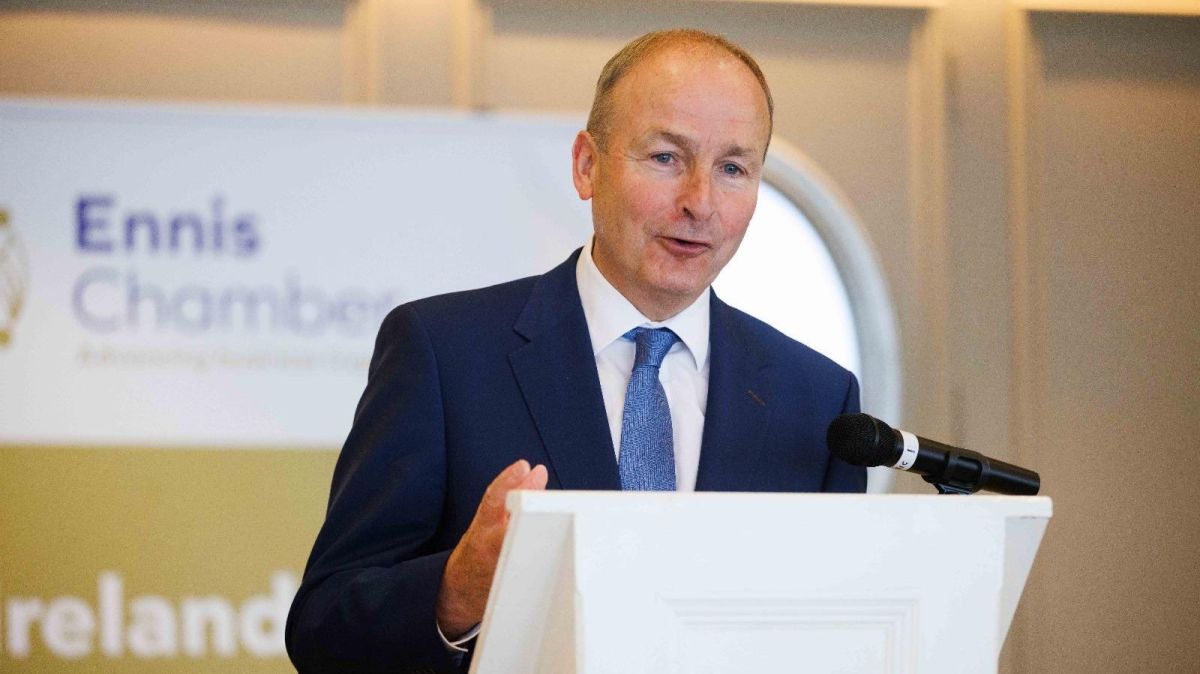Speaking during canvassing in the Dublin South Central constituency, Mr. Martin reaffirmed his position that Fianna Fáil would not engage with Sinn Féin in government formation after the upcoming election.
Sinn Féin leader Mary Lou McDonald, in response, accused Mr. Martin of being intent on facilitating Fine Gael’s return to power after Friday’s general election.
When questioned by reporters about his stance, the Tánaiste and Fianna Fáil leader emphasized that his decision was based on fundamental policy disagreements.
“First of all, we have to deliver on our mandate. People vote for Fianna Fáil based on our principles—supporting an enterprise economy, a pro-European outlook, a commitment to home ownership, and the democratic nature of our party,” Mr. Martin explained. “The vast majority of Fianna Fáil voters support the position I’ve adopted, which is policy-driven.”
He criticized Sinn Féin’s economic proposals, specifically their plan for €3.5 billion in tax increases, which he argued would harm small and medium-sized enterprises. “If you analyze Sinn Féin’s manifesto, it undermines entrepreneurship and the spirit of enterprise in Irish society,” he said. “In politics, it’s legitimate to have policy differences, and this is one of them.”
Pressed on whether he would categorically rule out negotiating with Sinn Féin, Mr. Martin confirmed his stance was firm. “The same applied in 2020 and 2016—we didn’t engage with Sinn Féin on policy grounds during those elections either.”
When asked whether his opposition was linked to personalities within Sinn Féin, such as Ms. McDonald, Mr. Martin dismissed the notion. “This isn’t personal. Anyone who knows me knows I focus on policy and substance, not personalities. We’re a democracy, and I respect everyone who stands for election—it’s not an easy thing to do.”
In response, Ms. McDonald rejected Mr. Martin’s criticisms of Sinn Féin’s policies, particularly his suggestion that the party is anti-EU. She described Sinn Féin as “resolutely European” and argued that the party’s willingness to challenge EU policies reflects a constructive approach.
“Micheál Martin doesn’t get to define what being a good European is,” she said. “In my view, the best Europeans are those who challenge the system when it’s clearly wrong and work constructively to protect Irish and international interests.”
Ms. McDonald also took aim at Fianna Fáil’s broader approach, suggesting Mr. Martin was out of touch with voters. “I see that Micheál Martin is determined to put Fine Gael back in government. That’s baffling when so many people are telling us during this campaign that they’re struggling, suffering, and feel betrayed by the Government—especially younger people. Change is possible, but it will only come with a different government,” she said.
Touching on the EU, Ms. McDonald criticized European Commission President Ursula von der Leyen’s stance on the Gaza conflict as an example of where Sinn Féin would push for reform. “Being a good European means standing up for what’s right, even when it means challenging the EU itself,” she added.














